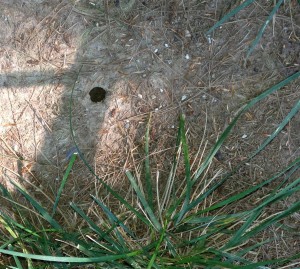I’m glad. I vow to be mentally prepared in 2021, but I wasn’t ready this past May.
This year’s Brood II largely missed Northern Virginia. South of us, some areas were inundated, as expected. Friends with vacation homes around Lake Anna near Charlottesville were dealt a true cicada full house. They saw Brood II up close in all its red-eyed, rambuctious, ear-splitting, smelly glory. As for our neighborhood, it was no louder than usual, and no more critter-crowded than usual.
It wasn’t until toward the end of July that we first began hearing isolated cicadas chirping at night. This is a sound I love. It’s the soothing music of a summer night in the South, one that takes me back to my childhood bedroom in Atlanta. The windows are open, a fan is whirring, and the cicadas are singing, pleasantly, contentedly.
There were no cicadas in Cape Cod where we vacationed, and the nights seemed too quiet. We heard only crickets, the wind, an occasional coyote, and some chattering, laughing teenagers (including my own). The cicadas welcomed us home to Virginia.
I still have not seen a cicada this summer. During a walk, Kiko and I heard one buzzing loudly in the grass. He pounced, fox-like, but it escaped him, and I pulled my little dog away. The only visual cicada evidence I’ve discovered is a single, perfectly round, half-inch-diameter hole in a bare spot below the bird feeder. Nine years ago, our lawn was alarmingly riddled with such openings. While I’m glad that’s not the case again, I do hope our lone cicada managed to fulfill its purpose and find a mate. I like to think that, in 2030, I’ll be hearing the chirping of its offspring.
For the earlier post on Cicadas, see here.

